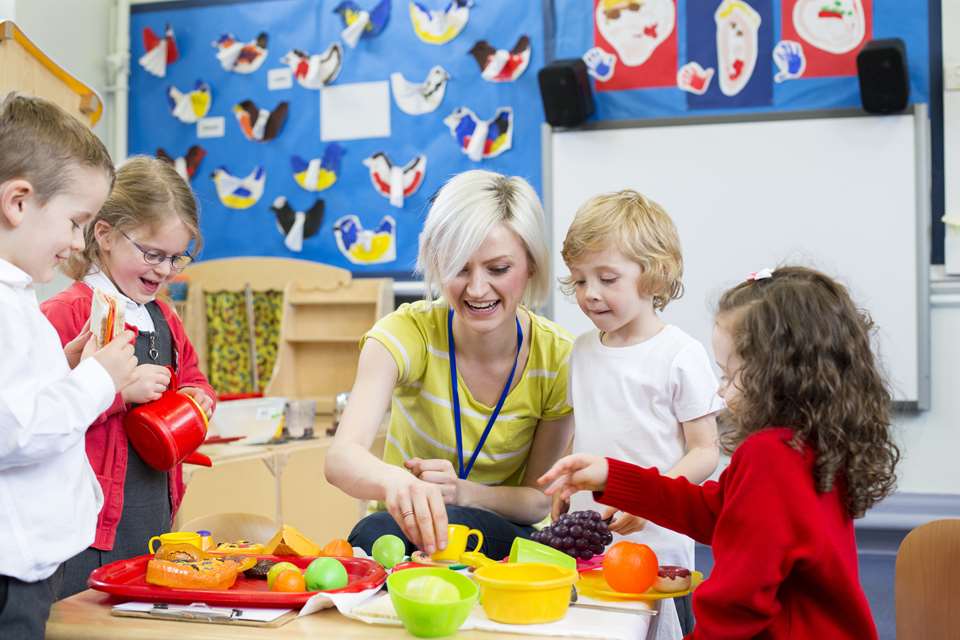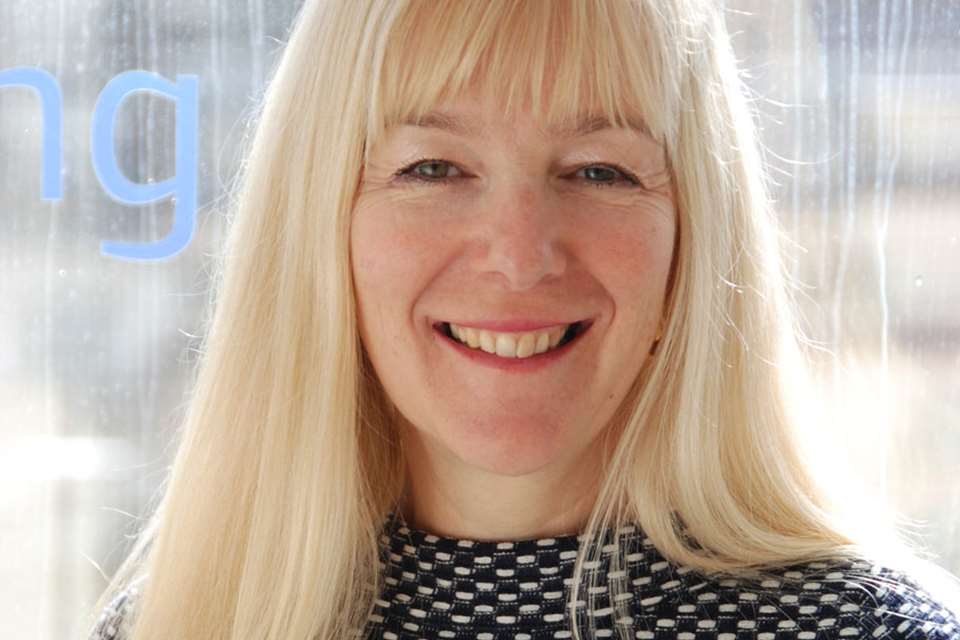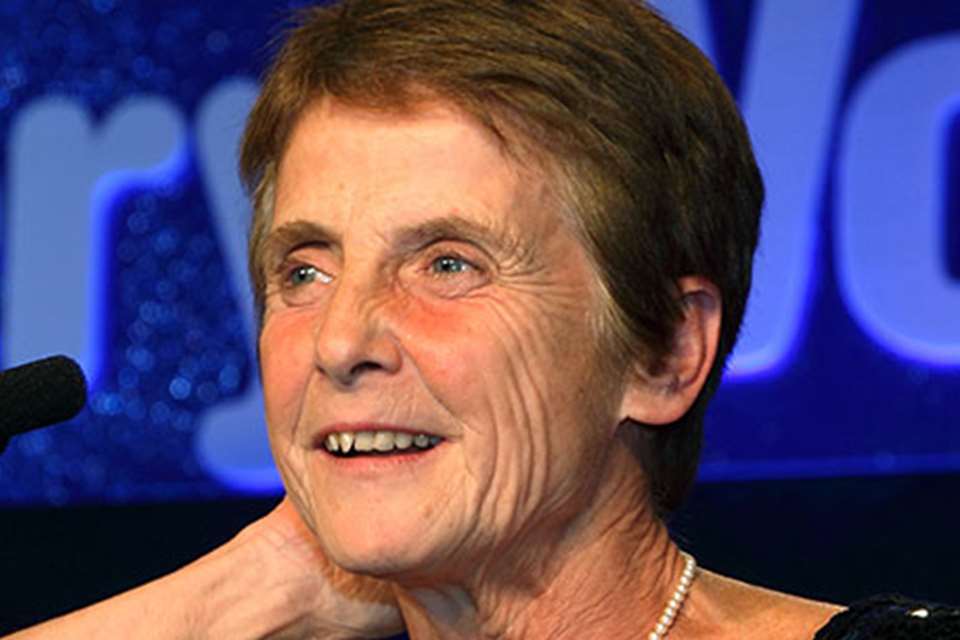Ofsted’s Reception report ‘narrow and political’
Monday, December 11, 2017
The publication of Ofsted’s Reception year report ‘Bold Beginnings’ has been met with dismay by some teachers and early years experts, particularly those concerned about the push of more formal learning from Key Stage 1 into the EYFS.

The report’s recommendations for schools (see box), including making sure children are taught ‘correct pencil grip and how to sit correctly at a table’, as well as a focus on synthetic phonics and ‘direct teaching of reading, writing and mathematics’, have been viewed by some commentators as part of a politically driven agenda towards more formal teaching of four- and five-year-olds.
While asserting that ‘a good early education’ is ‘the foundation for later success’, the report is largely critical of Reception class teaching, stating that for too many children the year is ‘a false start’ and ‘a missed opportunity’ that could lead to some ‘falling behind their peers’.
BOLD BEGINNINGS’ RECOMMENDATIONS
All primary schools should:
- make the teaching of reading, including systematic synthetic phonics, the core purpose of Reception year
- attach greater importance to the teaching of numbers in building children’s fluency in counting, recognising small numbers of items, comparing numbers and solving problems
- ensure that when children are learning to write, resources are suitable for their stage of development and that they are taught correct pencil grip and how to sit correctly at a table
- devote sufficient time each day to the direct teaching of reading, writing and mathematics, including frequent opportunities for children to practise and consolidate their skills
- use the EYFSP as a guide to end-of-Reception expectations rather than to define what is taught.
The Department for Education should:
- review the EYFS to ensure schools better understand the nature and purpose of the Reception year and what should be taught
- review the content of the EYFS Profile so there is greater alignment between the early learning goals at the end of Reception and the national curriculum for Year 1
- streamline the EYFSP to reduce teachers’ workload around assessment and for it to become more useful for benchmarking the knowledge and understanding that children need for the rest of their formal education
- raise the profile of early maths teaching, similar to the investment made in early reading and the teaching of systematic synthetic phonics, by supporting the development of appropriate schemes and resources.
CURRICULUM REVIEW
Ofsted said that in 2016 around a third of five-year-olds did not reach the expected level of development in Reception; of disadvantaged children, more than half were behind.
Based on visits by Ofsted inspectors to 41 Good and Outstanding primary schools in England, the report aims to ‘shine a light on the Reception year and the extent to which a school’s curriculum for four- and five-year-olds prepares them for the rest of their education and beyond’. The chief inspector commissioned the survey as part of a wider curriculum review.
Inspectors talked to Reception teachers and school leaders and observed Reception children’s learning. Ofsted said the schools visited were very good schools that were making a difference for all young children, regardless of their background, because of what they taught.
‘Bold Beginnings’ has recommendations for those who work in Reception, central Government and initial teacher education providers.
According to the report, newly qualified teachers are not well prepared to teach reading, writing or numbers in Reception; Ofsted wants all trainee teachers to have enough knowledge of Reception so they understand progression from the EYFS.
Ofsted said it would review and update the guidance for inspectors about evaluating the quality of early years provision in this first year of school.
The report will also inform the next inspection framework from September 2019.
Ofsted chief inspector Amanda Spielman said, ‘Reading should be at the heart of the Reception year. It is important that in the Reception classroom young children hear new vocabulary and have the opportunity to practise new words and phrases.
‘The best schools know how to design their curriculum so that children’s learning and development sets them up well for the rest of their schooling.
‘Reception should not just be a repeat of what children learned in their nursery or pre-school, or with their childminder. They deserve better than facing years of catching up.’
Meanwhile, early years organisations and experts have expressed concern about Ofsted’s narrowing of the focus on literacy and maths at the expense of children’s physical development and personal, social and emotional development.
Early years consultant and trainer Kym Scott told Nursery World, ‘This report seems, from its opening line, designed to rubbish Reception teachers and the incredible job they do in ensuring that the emotional needs of our youngest children in schools are met, alongside helping them learn the basic academic skills of reading, writing and mathematics.
‘I do not know of a Reception teacher in the land, for example, who doesn’t directly teach children phonics, or focus on supporting children with developing their handwriting skills, yet three of the five key recommendations in the report are around this. And no recommendations are made around the areas that have been highlighted as being the real building blocks of future learning – physical development, communication and language, personal, social and emotional development, and the Characteristics of Effective Learning, all of which are shown by research to be key indicators of later achievement.
‘We have a mental health crisis looming in our young people and this report is not only a missed opportunity to address this but in some ways risks contributing to it by encouraging schools to put our youngest children under increasing pressure.’
Ms Scott, who helps to run the Keeping Early Years Unique Facebook group, which has 40,000 members – many of them Reception teachers – said the reaction had been ‘utter dismay’.
She said, ‘Already we hear daily stories of frustrated Reception teachers who are being prevented from giving children the play-based education experiences they know they need by well-meaning head teachers insisting that our four-year-olds are sat down at desks for long periods. This report appears to give the green light to even more of this. Hence I have had more than 100 responses from those working in Reception classes in the last 24 hours telling me how deeply concerned they are, not only about the impact this report could have on children’s learning but also on their well-being and physical health.’
‘POLITICAL AGENDA’
Ms Scott added, ‘A very clear political agenda for introducing more formal learning lies beneath it, and it concerns me deeply that this report will feed into DfE policy-making on assessment and teaching in Reception classes.’
Early years consultant Tamsin Grimmer said the report made ‘very frustrating reading as it does not reinforce the amazing practice that is out there, which does operate a free-flow system. I feel it totally devalues the EYFS and yet again only talks about YR as being preparation for Year 1.’
She added, ‘The key findings and recommendations reflect the narrow school-readiness agenda and the hugely inappropriate over-focus on literacy and maths. The summaries and recommend­ations do not summarise the report or make logical recommendations based on what the rest of the document says. It is clearly written to a different agenda and contradicts previous messages we have been given, including those from Ofsted.’
Writing in a blog for Nursery World online, Gill Jones, Ofsted’s deputy director for early years, cited Ofsted statistics that show 94 per cent of early years providers are judged Good or Outstanding. She said, ‘I want to stress that we are not criticising pre-schools, nurseries and childminders. We know that this improving quality of provision really helps get our children well prepared for Reception.’









